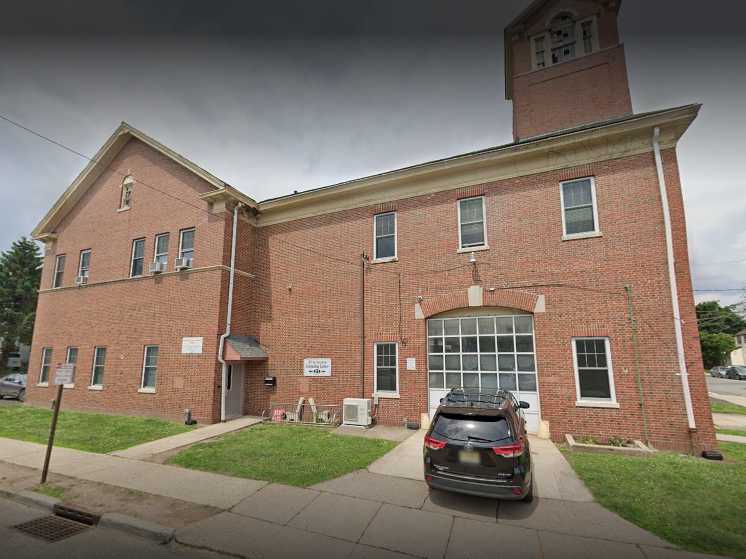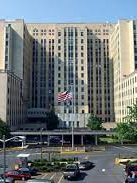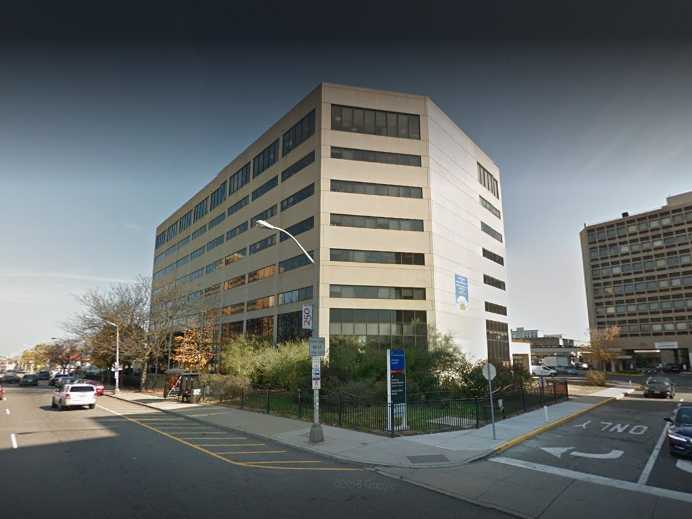Irvington Counseling Center

Contact Details
-
Name:Irvington Counseling Center
-
Address:21-29 Wagner Place
Irvington, NJ - 07111 -
Phone:973-399-3132 x214
-
Email:
-
Website:
Description
There are currently state and federally funded or sponsored drug and alcohol treatment centers in the state of New Jersey
Questions & Answers
Help others like you find out more about Irvington Counseling Center. Do you know the answers to any of these questions? Contribute now and help others like you.
What kinds of care do they offer?
-
Mental health treatment
Includes interventions such as therapy or psychotropic medication that treat a person's mental health problem or condition, reduce symptoms, and improve behavioral functioning and outcomes.
-
Treatment for co-occurring substance use plus either serious mental health illness in adults/serious emotional disturbance in children
Housing for individuals recovering from substance abuse that is designed to provide a drug and alcohol-free living environment and appropriate support services to facilitate movement to independent living. Such housing includes transitional living, sober houses, sober living, recovery houses, and 3/4 houses.
What type of facility is this?
-
Outpatient mental health facility
Facility that primarily provides ambulatory clients/patients with less than 24-hour outpatient mental health services for generally less than 3 hours at a single visit. Services are provided on an individual, group or family basis, usually in a clinic or similar facility. A psychiatrist generally assumes the medical responsibility for all clients/patients or direction of the mental health treatment.
What types of treatment approaches do they offer?
-
Individual psychotherapy
Focuses on a patient's current life and relationships within the family, social, and work environments through one-on-one conversations with a therapist. The goal is to identify and resolve problems with insight, as well as build on strengths.
-
Couples/family therapy
Are two similar approaches that use discussions and problem-solving sessions facilitated by a therapist to help couples and family members improve their understanding of and the way they respond to one another. This type of therapy can resolve patterns of behavior that might lead to more severe mental illness. Family therapy can help educate about the nature of mental disorders and teach skills to better cope with the effects of having a family member with a mental illness, such as how to deal with feelings of anger or guilt.
-
Group therapy
Involves groups of usually 4 to 12 people who have similar problems and who meet regularly with a therapist. The therapist uses the emotional interactions of the group's members to (1) help them get relief from distress and (2) possibly modify their behavior.
-
Telemedicine/telehealth therapy
The ability for healthcare providers, working from a distance using telecommunications technology, to communicate with patients, diagnose conditions, provide treatment, and discuss healthcare issues with other providers to ensure quality healthcare services are provided. Other names used for this treatment approach are: e-medicine, e-therapy, e-psychiatry, and telepsychiatry.
-
Smoking not permitted
Smoking is not allowed.
What type of setting is this location?
-
Outpatient
Describes patients who receive treatment services without an overnight stay at a treatment facility or hospital.
Who is responsible for the operation of this facility?
-
State government
Government of a country subdivision in a federal form of government, which shares political power with the federal or national government and must meet certain standards set by the federal government, but are free to expand beyond what exists at the federal level and improve services, access, and protections for consumers, such as mental health and substance abuse services, in that state.
What types of payment or funding do they accept?
-
Cash or self-payment
Payment for treatment is made by the person directly, through cash or other means, rather than using health insurance.
-
Medicaid
A joint federal and state program that helps with medical costs for some people with low incomes and limited resources. Medicaid programs vary from state to state.
-
Medicare
The federal health insurance program for people age 65 and older and people with disabilities.
-
Private health insurance
-
State mental health agency (or equivalent) funds
Funds designed to finance the cost of treatment for mental health conditions.
-
Other State funds
-
Community Service Block Grants
Provides funds to alleviate the causes and conditions of poverty in communities.
Is any payment assistance available?
-
Sliding fee scale (fee is based on income and other factors)
Variable prices for services based on a person?s ability to pay.
What specific groups are treated here?
-
Lesbian, gay, bisexual, transgender, or queer/questioning (LGBTQ)
Facility has a program or group specifically tailored for LGBT clients.
-
Veterans
Facility has a program or group specifically tailored for Veterans.
-
Active duty military
Facility has a program or group specifically tailored for active duty military persons.
-
Members of military families
Facility has a program or group specifically tailored for Military families.
-
Seniors or older adults
Facility has a program or group specifically tailored for Seniors or older adults.
-
Clients who have experienced intimate partner violence, domestic violence
Facility has a program or group specifically tailored for persons who have experienced intimate partner violence, domestic violence.
-
Children/adolescents with serious emotional disturbance (SED)
Facility has a program or group specifically tailored for children/adolescents with serious emotional disturbance.
-
Persons 18 and older with serious mental illness (SMI)
Facility has a program or group specifically tailored for persons with serious mental illness.
-
Persons with post-traumatic stress disorder (PTSD)
Facility has a program or group specifically tailored for persons with post-traumatic stress disorder.
-
Young adults
Facility has a program or group specifically tailored for Transitional age young adults.
-
Persons experiencing first-episode psychosis
Facility has a program or group specifically tailored for persons with eating disorders.
What ancillary services are offered at this facility?
-
Case management service
Helps people arrange for appropriate services and supports through a case manager who monitors the needs of clients/patients and their families and coordinates services, such as mental health, social work, health, educational, vocational, recreational, transportation, advocacy, and respite care, as needed.
What age groups are accepted here?
-
Children/Adolescents
Facility accepts children/adolescents (12 or younger) for treatment.
-
Young Adults
Facility accepts young adults (13-25) for treatment.
-
Adults
Facility accepts adults (26-64) for treatment.
-
Seniors
Facility accepts seniors (65 or older) for treatment.
What types of license or certifications or accreditation does this facility posses?
-
Federally Qualified Health Center
An entity may qualify as a FQHC if it meets one of these requirements (CMS, 2017): Is receiving a grant under Section 330 of the Public Health Service (PHS) Act or is receiving funding from such a grant and meets other requirements; Is not receiving a grant under Section 330 of the PHS Act, but is determined by the Secretary of the Department of Health and Human Services (HHS) to meet the requirements for receiving such a grant (i.e., qualifies as a FQHC "look-alike") based on the recommendation of the Health Resources and Services Administration (HRSA); Was treated by the Secretary of the Department of HHS for purposes of Medicare Part B as a comprehensive Federally-funded health center as of January 1, 1990; Is operating as an outpatient health program or facility of a tribe or tribal organization under the Indian Self-Determination Act or as an urban Indian organization receiving funds under Title V of the Indian Health Care Improvement Act as of October 1, 1991.
-
Mental health clinic or mental health center
What specific pharmacotherapy treatments do they provide?
-
Chlorpromazine
Chlorpromazine is used to treat the symptoms of schizophrenia and to treat the symptoms of mania in people who have bipolar disorder. It helps you to think more clearly, feel less nervous, and take part in everyday life. It can reduce aggressive behavior and the desire to hurt yourself/others. It works by helping to restore the balance of certain natural substances in the brain.
-
Loxapine
-
Perphenazine
-
Thioridazine
-
Clozapine
-
Antipsychotics used in treatment of SMI
A multi-disciplinary clinical team approach, helps those with serious mental illness live in the community by providing 24-hour intensive community services in the individual's natural setting.
Is vaping allowed at this facility?
-
Vaping not permitted
How do I apply for admission at this location?
Have you been to this facility? What was your experience?
Is there a wait-list for treatment center?
Is any payment required?
Related Posts
VA NJ Healthcare System
- East Orange, NJ
- 2.16 miles away
University Hospital
- Newark, NJ
- 3.00 miles away


